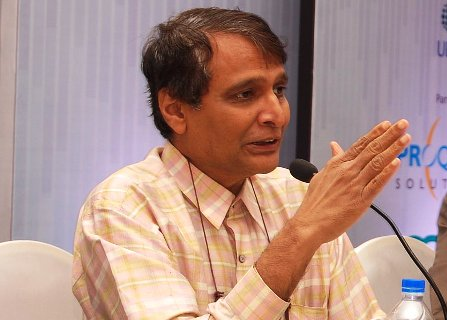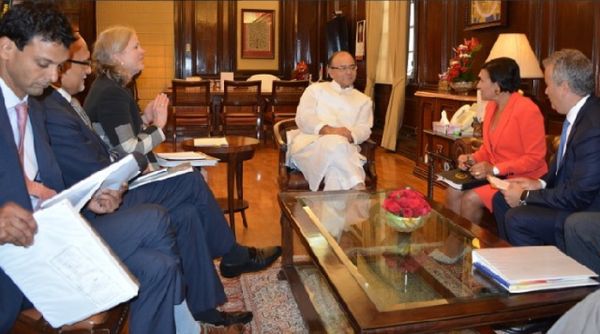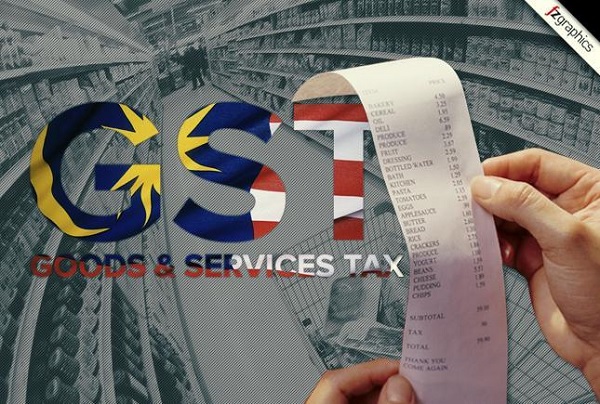
by Editor | May 25, 2021 | Economy, News, Politics

Suresh Prabhu
New Delhi : Thanking Prime Minister Narendra Modi and Finance Minister Arun Jaitley for addressing exporters’ issues in the GST Council meeting, Commerce Minister Suresh Prabhu on Friday said his ministry would make maximum effort on promoting exports.
“Thx @narendramodi ji @arunjaitley for addressing the exporters issues in #GSTCouncil. We shall together work on promoting exports,” Prabhu said in a tweet following the 22nd meeting here of the Goods and Services Tax (GST) Council.
In a relief to exporters, the government on Friday announced that it would immediately refund exporters for the month of July and August through cheques from October 10 and October 18, respectively.
Following the day-long meeting of the GST Council, Jaitley told reporters that this would be an interim relief, and as a long term measure e-wallets will be created for all exporters by April 1, 2018, to carry forward the refund process.
“We are working in close coordination with @FinMinIndia to address GST related issues of exporters,” Prabhu had said earlier in a separate tweet.
Earlier on Friday, Prabhu met with stakeholders, including leading exporters, Export Promotion Councils, associations and industry chamber representatives.
“Had extensive discussions with stakeholders on strategies to boost exports.We will work together to ensure exports led growth,” he had tweeted after the meeting.
“We must align our standards with global standards. Benchmarking will stimulate exports,ensure India’s integration with global value chain,” he said in another tweet.
“We must enhance competencies, tap into the global value chain which will provide fillip to our efforts to enhance exports.”
According to an official release here, the Minister asked the export promotion councils and industry associations to prepare a vision statement for their product group.
“He also stressed on the importance of export led growth and assured stakeholders of working together to boost exports,” a Commerce Ministry statement here said.
—IANS

by Editor | May 25, 2021 | Commodities, Commodities News, Corporate, Corporate Governance, Economy, News, Politics
 New Delhi : Finance Minister Arun Jaitley will soon write to all state Chief Ministers urging them to cut sales tax, or value added tax (VAT), on petrol an diesel, Petroleum Minister Dharmendra Pradhan said on Wednesday.
New Delhi : Finance Minister Arun Jaitley will soon write to all state Chief Ministers urging them to cut sales tax, or value added tax (VAT), on petrol an diesel, Petroleum Minister Dharmendra Pradhan said on Wednesday.
“We have proactively cut excise duty. Now it is the turn of states to reduce VAT,” he said.
Noting that states impose VAT ranging from 26 per cent to 38 per cent on fuel, the minister added: “I urge all states to reduce VAT by 5 per cent in line with the cut in central excise duty to provide farmers and consumers with one more slab of relief.”
Under all round attack on rising fuel prices, the government on Tuesday decided to slash the excise duty on petrol and diesel by Rs 2 per litre — effective Wednesday — to cushion the impact of rise in international crude prices, in a decision that will cost the central exchequer Rs 13,000 crore during the remaining part of the fiscal.
Earlier, due to the increase in the international prices of petrol and diesel during the last few weeks, the retail selling prices of petrol and diesel in Delhi had risen to Rs 70.83 a litre and Rs 59.07 per litre, respectively, as on October 2.
Pradhan said the Centre has sacrificed Rs 26,000 crore in revenue in the cut in excise duty.
“States are the biggest beneficiaries. They get all of the VAT collection plus they also get 42 per cent of the central excise collections. The amount remaining with the Centre is used to finance centrally sponsored schemes in states,” he said.
As a result of the excise duty reduction, petrol price has been cut by Rs 2.50 per litre and that of diesel by Rs 2.25, he added.
Under the daily pricing regime for transport fuels, petrol in Delhi on Wednesday was costing Rs 68.38 a litre and diesel Rs 56.89.
Announcing the excise cut, the government said the rise in the prices of petrol and diesel is also reflected in WPI, or wholesale, inflation, which has increased to 3.24 per cent for the month of August 2017, as compared to 1.88 per cent for the month of July 2017, and which prompted the government to act swiftly.
Last month, petrol prices in Mumbai, for instance, crossed levels they had touched before the Narendra Modi government took charge in 2014. In response to criticism on rising fuel prices, Petroleum Minister Dharmendra Pradhan clarified that the excise revenues served for spending on social development schemes.
Despite demands from industry, petroleum products, as well as natural gas, do not come under the Goods and Services Tax (GST) regime. These continue to be taxed as per the old VAT regime.
—IANS

by Editor | May 25, 2021 | Corporate, Corporate Governance, Economy, Finance, News, Politics
 New Delhi : Finance Minister Arun Jaitley on Sunday said Goods and Services Tax (GST) slabs may be reduced in the future if a “revenue neutral plus” tax level is reached.
New Delhi : Finance Minister Arun Jaitley on Sunday said Goods and Services Tax (GST) slabs may be reduced in the future if a “revenue neutral plus” tax level is reached.
Jaitley made the remark at the “Foundation Day” event of the National Academy of Customs, Indirect Taxes and Narcotics (NACIN).
According to the Minister, reduction in tax slabs under the current GST regime can happen but only after the regime reaches a “revenue neutral plus” level.
Since July 1, GST has replaced around a dozen central and state taxes into a single national tax.
At present, there are four tax slabs of 5, 12, 18 and 28 per cent, plus a levy on cesses on luxury items like cars, aerated drinks and tobacco products to compensate states for any revenue losses in the first five years.
An overwhelming 81 per cent of items under the GST regime attract tax of 18 per cent or below and only about 19 per cent of items are taxed at the highest rate of 28 per cent.
—IANS

by Editor | May 25, 2021 | Corporate, Corporate Governance
 New Delhi : Finance Minister Arun Jaitley on Tuesday said the CSR spend of corporates, which has become functional in the last three-to-four years after the Company Law was amended, can significantly support the public expenditure of the government.
New Delhi : Finance Minister Arun Jaitley on Tuesday said the CSR spend of corporates, which has become functional in the last three-to-four years after the Company Law was amended, can significantly support the public expenditure of the government.
“Governments at the Centre and in states spend money. If this (corporate social responsibility spend) comes as supportive expenditure, it can add significantly,” Jaitley said at the Axis Bank CSR programme here.
He said that in 2013 when the Company Law was amended and CSR (corporate social responsibility) was made mandatory out of profits, it was thought to be an additional tax by a section of the industry. “That was the first reaction.”
“But in these three-to-four years, we have seen it function,” Jaitley said.
Elsewhere in developed economies, corporate charity was always a very important instrument of service, he said.
“Conventionally that didn’t exist in India. Charity in India was always identified with communities. It was only in the last decade or so that the concept of service to society through corporate instrumentalities begun.”
The Finance Minister added that the choice of destination where the CSR spend should go is extremely important.
“There are a number of obvious areas where improvement is required. There are areas in geographical and social sectors, which are more challenging to reach,” he said referring to the Axis Bank’s CSR project which is targeted towards the upgradation of over a 104 schools in the areas surrounding Leh and Kargil in Jammu and Kashmir.
“CSR initiative of Axis bank has reached the most disadvantaged part of India. People representing these regions explain how everything located at distance costs more. And the ability to generate more income to match this cost is not there.
“Being smallest, Leh and Ladakh’s voice is less audible than the other regions. Axis Bank has done a commendable service by bringing the region to the forefront. Spending the large part of CSR resources in upgrading the schools is an extremely important step,” he said.
Jaitley said education was an important sector for CSR activities.
“Education is actually a great leveller and the level playing field can be provided by either state assistance, corporate assistance through CSR or promoting industries like tourism,” he said.
—IANS

by Editor | May 25, 2021 | Banking, Corporate, Corporate finance, Corporate Governance, Economy, Finance, Investing, News, Politics
 Mumbai : Looking at ways to boost economy amid a slowdown, Finance Minister Arun Jaitley on Friday said that encouraging private investment and improving capacity of banking system to support growth are the two major challenges for which best solutions have to be found.
Mumbai : Looking at ways to boost economy amid a slowdown, Finance Minister Arun Jaitley on Friday said that encouraging private investment and improving capacity of banking system to support growth are the two major challenges for which best solutions have to be found.
“There are two major challenges – encouraging private sector investment and improving capacity of banking system to support growth. We have done adequate analysis as to the cause of these challenges,” he said addressing the 70th annual general meeting of Indian Banks’ Association (IBA) here.
“Now as a dynamic society we have to look for best solutions and ensure resolution of these issues faster.”
Jaitley said that there was also a major challenge with regard to increase in stressed assets.
“I think this is the core area of concern today. India has adequately demonstrated its ability to reform, grow at a reasonable pace when world was going slow. Indian administration is supportive of reforms. India’s ability to face challenges in economy is much better, higher than what it traditionally has been,” he said.
The Finance Minister said that the government had amended laws to bring a speedy resolution of the bad debts of banks, including Insolvency and Bankruptcy Code, 2016 (IBC).
“IBC is now in full swing now. Speed is of essence. Resolution is to be made in good faith. Certain trust in the decision making of these institutions is essential. If we work on these principles, we should be able to accept some early harvest,” he said.
Pledging support to the revival of the banking system, Jaitley said that all government efforts were directed to make banks stronger in terms of resources.
“In this challenge, the government stands one with the banking system. Whatever steps are required to be taken, we will expeditiously work with banking system to strengthen it.”
“All government efforts, whether be it toward erosion of black money, Goods and Services Tax (GST), other reforms, have been to make sure that the ability of the state is strengthened in terms of resources… to find resources for the banking system,” Jaitley said.
“I do believe that India itself has great resilience, which enables it to find solutions. Banks have very important role to play,” he added.
Crediting the banking system for efficiently carrying out operations during demonetisation followed by the remonetisation process, he said that the banks with the constraint of time dealt with the large inflow of cash and distribution of new currency.
“In a matter of few weeks, the whole process of deposit of old currency and remonetisation and distribution of new currency, without any major incident, was implemented by the banking system. The programe where millions of people were involved will occasionally throw a black sheep but the banking system was robust to take action.”
“Implementing it in a few weeks starting from November, and do it conclusively was a great credit to the banking system. Banks were flooded with large deposits, they showed ability to deal with them,” he said.
Jaitley said that demonetisation created a new normal wherein cash transactions have been visibly reduced and tax base has expanded.
“There was a conscious effort being made to alter both the behaviour and spending pattern of society. A new normal was sought to being created.”
“Cash dominated transactions were sought to be replaced with alternate spending culture. There has been reduction in cash spending,” he said.
He said that the new mechanism of indirect taxes — GST — was going smoother than expected and more people are likely to come under the taxation net.
“These are early days of implementation of the alternate taxation system. So far it is going smoother than expected. The decision making mechanism on top has been reasonably institutionalised. The mechanism to issue day to day issues has been created and is robust.”
“The number of people coming within the (GST) network is likely to gradually expand,” he said.
—IANS



